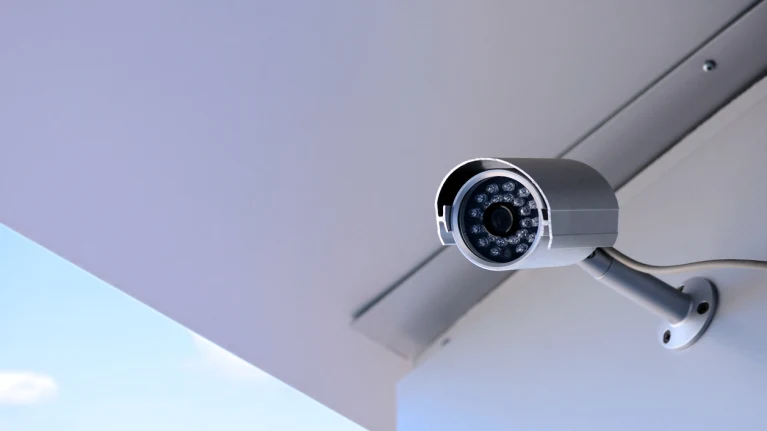With more employers monitoring workers with cameras and GPS trackers, federal regulators and states have taken steps to strengthen employee privacy rights.
Some employers rely on cameras that record employees and customers throughout company property. Elsewhere, employees have GPS trackers on their company-issued phones, vehicles or wearable devices, letting the employer know where they are.
Companies use these workplace surveillance technologies to encourage productivity, discourage theft, prevent workplace violence, and protect employees, customers and company property. They also use them to make sure employees are doing the work they are supposed to be doing.
“All employers, particularly with remote employees and employees who travel for work, have an interest in ensuring that their employees are actually working,” said Scott McIntyre, an attorney with Baker Hostetler in Cincinnati. “This is particularly relevant in the work-from-home-culture world where managers are not physically present to ensure employees are working when they say they are.”
Sometimes employers use the data collected by surveillance technologies to discipline employees who fall short of productivity quotas, penalize workers for taking time off or provide individualized directives throughout the workday, according to an October 2022 memo from National Labor Relations Board (NLRB) General Counsel Jennifer Abruzzo.
Federal law generally permits employers to use GPS tracking and videotaping for legitimate business reasons, but state laws vary on employee privacy rights. For example, Connecticut and California prohibit employers from installing cameras in bathrooms, locker rooms, changing areas, breakrooms and employee cafeterias. California also bans audiovisual monitoring of a remote worker’s residence or personal vehicle, unless that monitoring is strictly necessary to ensure the worker’s health and safety, to verify the security of company or client data, or to fulfill another compelling business purpose.
New York state passed a law in 2021 that requires employers to notify employees upon hiring about the types of electronic monitoring that may occur. Connecticut and Delaware have similar notice laws.
If an employer obtains employees’ written consent for electronic monitoring, that can bolster the employer’s case in court that the employee did not have a reasonable expectation of privacy, according to the American Bar Association.
NLRB Concerned About Section 7 Rights
The NLRB has clarified how workplace surveillance can be illegal in some cases, emphasizing the need to balance employers’ operational interests with employees’ privacy and union rights.
The NLRB’s 2022 memo identified GPS tracking, video surveillance and keystroke loggers as potentially interfering with employees’ Section 7 rights under the National Labor Relations Act (NLRA), which prohibits employers from monitoring workers to learn about their union activities.
Overtly or secretly photographing or filming employees engaged in protected concerted activities violates the NLRA because it has a tendency to intimidate, the memo noted. Examples of protected concerted activity include striking, picketing, forming a union, talking with co-workers about wages and benefits, circulating a petition asking for better hours and refusing to work in unsafe conditions.
The NLRB also reiterated that it’s unlawful for an employer to implement new monitoring technologies in response to activity protected by Section 7. The use of surveillance technologies is something the employer must bargain over with the union, if one is in place, and employers cannot use surveillance technologies to disproportionately apply production quotas or efficiency standards to get rid of unionized workers, the NLRB said.
The NLRB memo stands as a warning to businesses that surveillance technology might impinge on workers’ Section 7 rights, even if the employer didn’t intend to do so, McIntyre said. Constant surveillance may be considered problematic because employees may not engage in protected concerted activities if they’re always being watched by the company, he noted.
CFPB Says Law Can Protect Workers
On June 20, the Consumer Financial Protection Bureau (CFPB) published a commentary to clarify workers’ privacy protections under the Fair Credit Reporting Act (FCRA). The commentary said the legal protections can apply to information collected by employer surveillance technology and used in employment decisions such as promotion, reassignment and retention.
“[W]orkers are increasingly subject to the collection of information about them through automated workplace surveillance. Workers cannot prevent this information from being sold to data brokers and therefore eventually being relied upon by financial institutions, insurers and other employers,” the CFPB wrote.
“The CFPB’s robust response signals its intent to use the expansive language of the FCRA to hold businesses accountable for their use of employee surveillance data,” said Shelley Jackson, an attorney with Krieg DeVault in Carmel, Ind.
View original post here.
By Leah ShepherdNovember 15, 2023
Contact Granite Discovery to learn more about our services and how we can help you.



